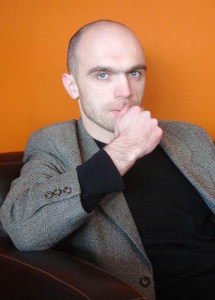There are many expressions to describe change in English.
We can use the following verbs:
become
get
go
come
turn
fall
Let’s look at each verb in more detail.
become
“become” is an irregular verb.
The past simple is “became”
The past participle is “become”
become + adjective
=to begin to be something
Examples:
He becomes tired at the end of the day.
It’s becoming dark. Let’s go home.
become + noun phrase
Examples:

Mark would like to become a firefighter.
Jane and Sarah have become friends.
get
get + adjective
= to begin to be something
“get” is more informal than “become”. It is particularly common in spoken English.
Examples:
I’m getting hungry. When are we going to eat?
It’s getting cold. Let’s go inside.
get + infinitive
= to begin to do something new.
= to begin to feel something new.
This describes a gradual change or process.
There are 2 common expressions with this structure:
1) get to know
Examples:
Mark seems nice. I would like to get to know him.
We got to know our neighbours at the party.
2) get to like
Example:
At first, I hated my job. But now I am getting to like it.
go
go + colour
We use “go” (not “get”) to describe changes of colour.
Examples:
George Clooney is going grey.
He’s going blue with cold.
Mark went red in the face when Jane kissed him.
It’s autumn and the leaves are going brown.

go + adjective
= to describe changes for the worse.
People:
go bald
go grey
go deaf
go blind
go mad
go crazy
Examples:

Mark is going bald.
David went mad when he lost his keys.
Food and drink:
go bad
go mouldy
go stale
go flat
Examples:
Don’t eat the fish. It has gone bad.
Soda goes flat after a few hours.
The bread has gone mouldy.
come
come + infinitive
= to describe a change in attitude.
There are 2 common expressions with this structure:
1) come to realise
Example:
Mark has come to realise that he hates living in New York.
2) come to regret
Example:
He came to regret accepting his new job.
turn
turn + adjective
= to describe a highly visible change of state.
It is common before colour adjectives. (“turn” is more formal than “go” + colour)
Examples:
He turned very aggressive when the police arrived.
It was so cold that my hands turned blue.
She is turning red in the face.
turn into + noun
=a dramatic change in the nature of someone (or something).
=to transform into someone else (or something else).
Example:
The caterpillar has turned into a butterfly.
fall
“fall” is an irregular verb:
The past participle is “fallen”
The past simple is “fell”
fall + adjective
There are a few expressions with “fall” that mean “become” (to start to be):
1) fall asleep
Example:
He fell asleep on the couch.
2) fall ill
Example:
Jane has fallen ill. She won’t be at work today.

